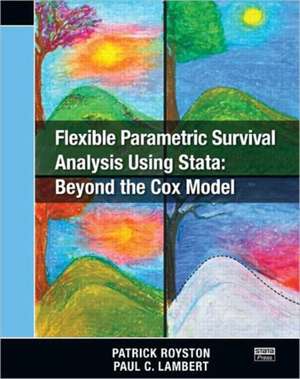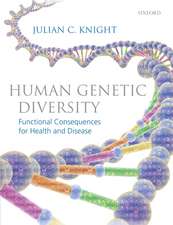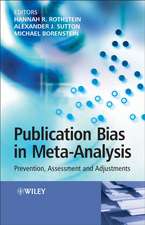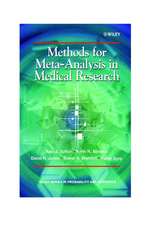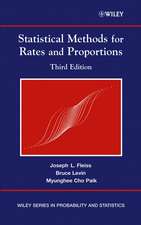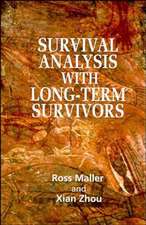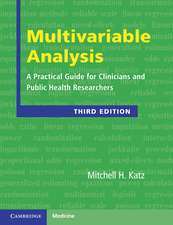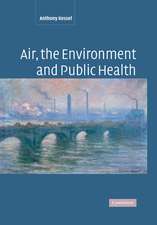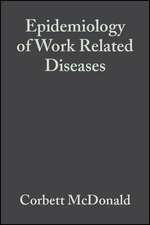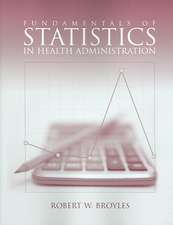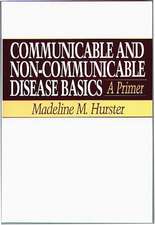Flexible Parametric Survival Analysis Using Stata: Beyond the Cox Model
Autor Patrick Royston, Paul C. Lamberten Limba Engleză Paperback – 4 aug 2011
Preț: 538.98 lei
Preț vechi: 585.85 lei
-8% Nou
Puncte Express: 808
Preț estimativ în valută:
103.17€ • 112.10$ • 86.72£
103.17€ • 112.10$ • 86.72£
Carte disponibilă
Livrare economică 31 martie-14 aprilie
Livrare express 14-20 martie pentru 41.26 lei
Preluare comenzi: 021 569.72.76
Specificații
ISBN-13: 9781597180795
ISBN-10: 1597180793
Pagini: 339
Ilustrații: Illustrations
Dimensiuni: 152 x 229 x 23 mm
Greutate: 0.75 kg
Ediția:1
Editura: Stata Press
Colecția Stata Press
ISBN-10: 1597180793
Pagini: 339
Ilustrații: Illustrations
Dimensiuni: 152 x 229 x 23 mm
Greutate: 0.75 kg
Ediția:1
Editura: Stata Press
Colecția Stata Press
Public țintă
Academic, Postgraduate, and Professional Practice & DevelopmentNotă biografică
Patrick Royston is a senior medical statistician at the Medical Research Council, London, UK. He has published research papers on a variety of topics in leading statistics journals. His key interests include multivariable modeling and validation, survival analysis, design and analysis of clinical trials, and statistical computing and algorithms. He is an associate editor of the Stata Journal.
Paul Lambert is a reader in medical statistics at Leicester University, UK. His main interest is in the development and application of statistical methods in population-based cancer research and related fields. He has published widely in leading statistical and medical journals.
Paul Lambert is a reader in medical statistics at Leicester University, UK. His main interest is in the development and application of statistical methods in population-based cancer research and related fields. He has published widely in leading statistical and medical journals.
Descriere
Through real-world case studies, this book shows how to use Stata to estimate a class of flexible parametric survival models. It discusses the modeling of time-dependent and continuous covariates and looks at how relative survival can be used to measure mortality associated with a particular disease when the cause of death has not been recorded. The book describes simple quantification of differences between any two covariate patterns through calculation of time-dependent hazard ratios, hazard differences, and survival differences.
